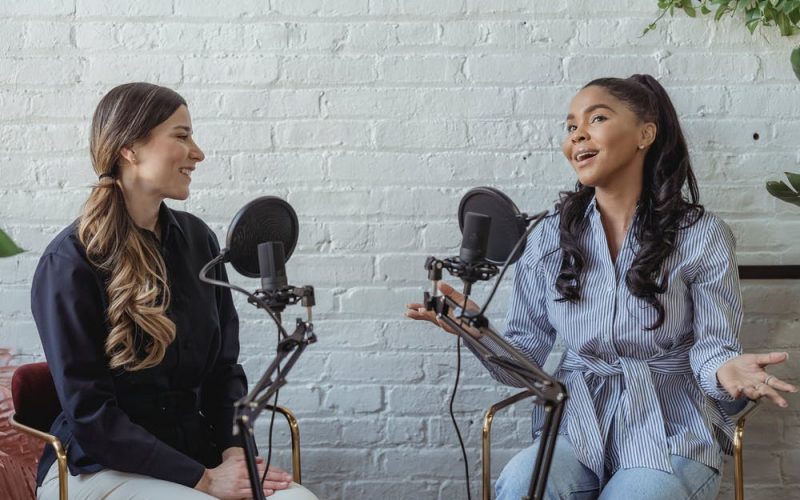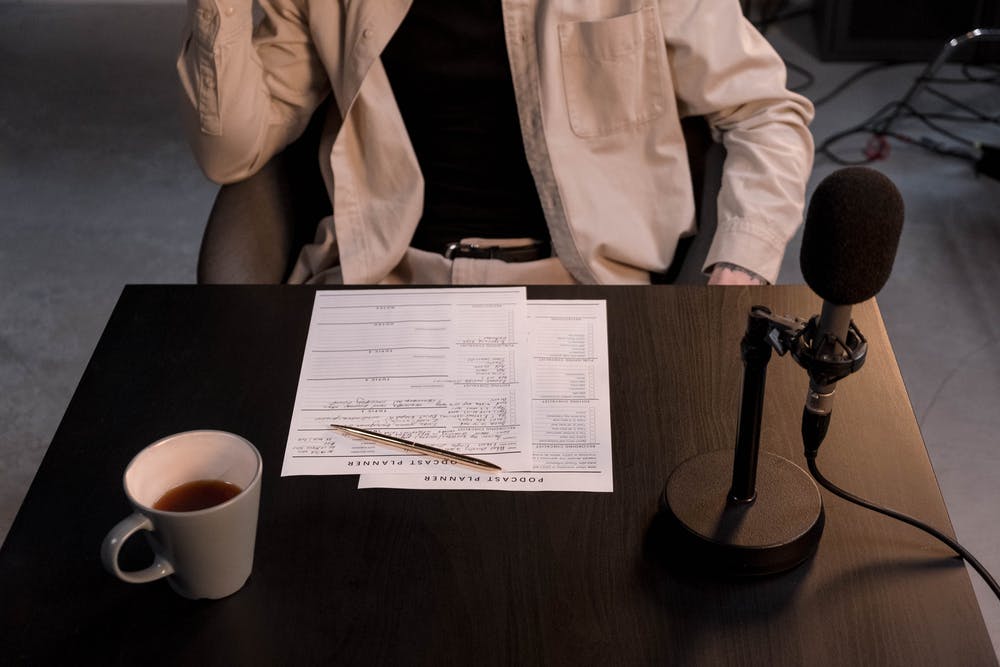The podcasting industry is relatively new, and it’s growing exponentially by the day. In this article we will be exploring the basics of how to start your own podcast including equipment you’ll need, setting up a website and hosting options as well as some advanced tips, so keep reading.
1. What do you need
Podcasting is simply online audio content distributed via RSS and iTunes to a mobile device like an iPhone or iPod. Podcasting can also be listened to on a desktop computer with iTunes or other services, with the difference being that you don’t have control over how it is distributed. The good news is that podcasting really doesn’t need much equipment at all. If you already own an iPhone or iPod, then you are halfway there! Alternatively, if you don’t want to use your phone as the recorder, any digital voice recorder will do fine. Another option is to pick up a portable audio recorder. When starting your own podcast, you’ll need to decide whether you want to make it available on iTunes. If you already have your own website with hosting then this is very simple and costs around $10 per year, which you can use for distributing your podcast both on your site and via iTunes. It’s also possible to use your website for podcast distribution, however you will need to also get hosting through another company.
2. Set up a website
If you don’t already have a website and hosting, setting up both is very simple and free through services like Weebly. Websites take around 10 minutes to set up and will allow you to upload the audio files as well as promote your podcast with a home page which looks professional. Whether you choose this option is down to personal preference, but it’s always better to look official if possible. When coming up with the name for your show, think of something catchy that won’t be used by any other podcasts out there. If you are considering a high profile name, then it’s a good idea to check the domain availability first. The best place to do this is through websites, which will also allow you to purchase your own domain. If you haven’t heard of a podcast before, think of something similar to a radio show or YouTube channel and add a title that will be relevant and easy for listeners to search for.
3. Recording your podcast
Your voice is made of sound waves and travels through the air, so when they travel past the small holes on a cheap computer microphone, they cause distortion and can even result in popping sounds. A pop shield will stop this from happening by diffusing the soundwaves before they hit the microphone and also extend the life of your mic because it won’t be used excessively like on cheaper microphones where there is no barrier between your mouth and the diaphragm. The last thing you want to avoid is background noise, whether that be dogs barking or traffic whizzing by outside! An easy solution to this is simply buying a cheap pair of noise-canceling headphones. Using great equipment will help you sound more professional and have greater consistency. Also, a good microphone will pick up your voice from a greater distance, so if you ever want to record an interview with another person they won’t have to be in the room at all.
4. You need good content
If your content isn’t good, then you won’t get many listeners, regardless of how great the quality is. Having a funny or interesting podcast is crucial to making it popular. If you are good at ranting about something, go ahead, but just remember that others may have similar opinions, so ask yourself whether your thoughts are original enough for people to be interested in listening. Don’t limit your listeners by having any rules regarding what topics can be discussed on your show, otherwise you will lose potential listeners who might not be interested in what it has become. It’s important to think about some kind of structure before starting out so that each episode isn’t too random and disorganized, which can bore new listeners right away! The last thing you want to do is have your voice be too soft or too loud because then people won’t be able to hear you properly. Also, if you are just starting out then consider doing weekly episodes which will give listeners something to look forward to in the following week.
There are many ways to start your own podcast, and this article has outlined the main ones. If you have experience with podcasting, feel free to share some of your own personal tips and tricks as well. Good luck with your podcast!






